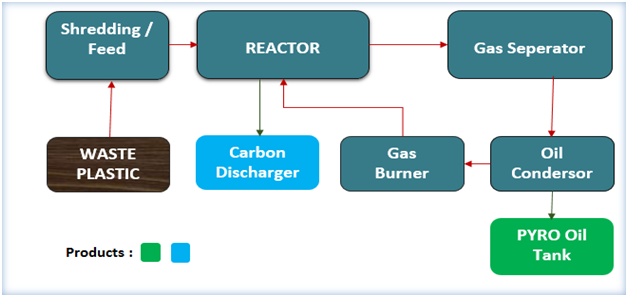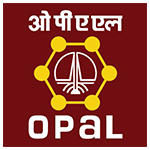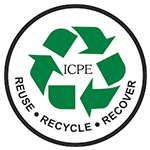Paterson Energy: Thermal Depolymerisation
Director Paterson Energy
Plastic is WONDERFUL because as durable and plastic is terrible because it is durable. Almost every piece of plastic ever made is still on the planet in some form or the other because plastic is not bio degradable. Plastic photo degrades which means that exposure to the sun breaks the plastic down into smaller and smaller versions of its original self. And this shrinkage of plastic takes thousands of years. While man has yet to find a material that is as sturdy and long lasting as plastic, there is no denying that its negatives outweigh the positives, mainly because of the apathy of plastic users and producers in finding solutions to effective mitigation or recycling options. Plastic production globally this year is expected to be more than 400 million tonnes and by 2050 when the population explodes to almost ten billion people it's expected that plastic production will triple .The problem with that is that today only a fraction of the plastic that we produced is recycled the rest ends up in our environment and it's coating our land and our oceans like a disease. While there are initiatives like garbage segregation, fines for dumping plastic, etc. more constructive measures are needed to continuously handle plastic waste. Plastic Pyrolysis is one such technique that can help in the disposal of a large quantity of waste plastic that is not recyclable, and convert to fuel.
What started out initially as a social initiative to clean up local surroundings for the promoters, blossomed into a start up enterprise in 2016. Paterson Energy is a Waste to Energy Company, recycling plastic waste into quality Plastic Oil using a continuous type Thermochemical Depolymerization Technology, with a processing capacity of 3TPD – 20TPD (Tons /Day). Paterson Energy has in-depth experience and expertise in supplying high performance continuous waste plastic to oil Thermochemical Depolymerisation plant to clients in India and abroad. The salient features of our plants are
- Standardized Plant Plastic Processing Capacity of 3TPD (Tons per day), 6TPD, 10TPD and 20TPD
- Continuous type Thermochemical Depolymerisation technology for high efficiency and safety
- Continuous type Thermochemical Depolymerisation technology for high efficiency and safety
- Production cost of less than Rs.20 (USD 0.22) per liter of Thermochemical Depolymerisation oil.
- Upto 95% conversion of waste plastic into Thermochemical Depolymerisation oil.
- Advanced catalyst –Improves efficiency, reduce coke yield, increases oil yield and quality.
- Advanced technology to manufacturing high quality Thermochemical Depolymerisation oil without distillation.
- Multi-discipline Design Engineering Team & Professors from external Universities.
- Indigenous Technology
- Machinery plant capacity and emission performance guarantees
- Robust and easy to operate and maintain plant design
- Advanced Thermochemical Depolymerisation Plant Technology
- Completely automated plant operation - Low operational manpower
- Zero effluent / Zero discharge plant
The Technology
Paterson’s technology deploys continuous Thermochemical Depolymerisation process to convert waste plastics to diesel grade fuels similar to diesel and gasoline. The technology uses a multi-staged thermal process to molecularly crack and re-arrange longer chain hydrocarbons found in plastics to shorter chain hydrocarbons found in petroleum fuels.
The Paterson Technology consists of the following operating systems and processes for the highly efficient and effective conversion of end of life plastics (Non Recyclable and Non Biodegradable) to useable liquid fuels. Suitable end of life plastics are preprocessed to size reduce and remove any contaminants or non-plastic materials from the feedstock at the first stage of the Paterson Technology. The shredded plastics are then loaded via a hot melt in-feed system directly into main De-Polymerization Reactor. Agitation commences to even the temperature and homogenizes the feedstocks
De-polymerization then commences and the plastic achieves a gaseous stage. Non-plastic materials fall to the bottom of the chamber. The gases from the Reactor passes into the contactor which knocks back the long-chained carbons and allows the required condensable vapors to pass into the distillation column. The system diverts the non-condensable synthetic gas through a scrubber and then back into the furnaces to heat the Reactor. The condensable gases are converted in the distillation column to produce lite oil and raw diesel. The light oil is put into storage. The raw diesel is passed to the vacuum distillation column to be further refined to produce diesel grade, kerosene grade and lite oil. The distillates are then collected in the recovery tanks.
- Environmental-friendly: Paterson’s technology
- Emission standard: Adopting special gas scrubbers to remove acid, gas and dust
- Smoke: Fully enclosed during the operation, there will be no dust.
- Water pollution: NIL (Zero pollution)
- Protection: Exhaust gas burning room, desulfurization & double-de-dusting system
- Odorless: Odor Exhaust system
The Feed Stocks (Waste Plastic)
Paterson’s technology process is specifically designed to manage most plastic waste feedstock in a single profitable process that is pertinent to the persistence of global plastic disposal issues.
The Process
The process is called Thermal Depolymerisation which is the chemical decomposition/degradation of organic and hydrocarbon substances/polymers by heating. The technology is a thermal degradation process in which plastic waste is treated in a cylindrical reactor at 400 to 600 Degrees Centigrade, in the absence of oxygen at high reaction temperatures and in the presence of a Catalyst. Thermal Depolymerisation of waste plastic results in producing high-energy gas, oils and carbon black. The ratios of the first three products depend on process conditions, mainly on temperature.
Process - Flow Chart
Conclusion
The biggest problem we face in our society today is misinformation. With the advent of social media communications, the importance of an organized recycling process is often underplayed. We at Paterson Energy, believe that, with a coordinated effort from the households till the dump yards, with a strong plan in place, on top of mitigating the plastic waste problem, we can actually succeed in employing a plastic recycling engine that can handle even twice the entire plastic waste created by us on a day to day basis. Creating such a system in place could be the single most valuable thing that we could leave for the next generation.




